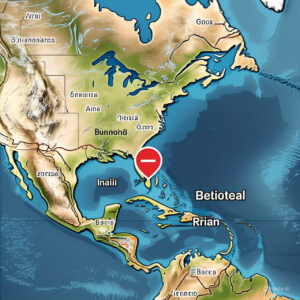Trump’s Strategic Pause on Iran: Timing, Implications, and What Comes Next
Introduction
In a move that has captured global attention, former President Donald Trump has announced a delay in making a definitive decision on restoring the Iran nuclear deal. This strategic pause—coming amid heightened tensions in the Middle East and with critical elections on the horizon—raises questions about U.S. foreign policy objectives, regional stability, and the economic fallout. In this article, we explore the reasoning behind the delay, analyze its potential consequences, and offer real‑world examples to help readers understand what this means for international relations and everyday life.

Why the Delay? Understanding the Context
Delaying a major foreign‑policy decision is never taken lightly. Several factors contribute to Trump’s choice:
- Domestic Political Calendar: With midterm elections approaching, foreign‑policy moves can sway key voter blocs.
- Economic Considerations: Oil prices, defense contracts, and sanctions relief all play into the U.S. economic outlook.
- Regional Security Dynamics: Allies such as Israel and Saudi Arabia have voiced concerns about Iran’s activities.
By pausing the decision, the administration gains time to negotiate side agreements on missile development, proxy activities, and verification mechanisms.
Key Stakeholders and Their Perspectives
Understanding who stands to gain or lose clarifies the stakes:
- U.S. Political Establishment
- Supporting the Pause: Some lawmakers believe stricter terms will yield stronger oversight.
- Opposing the Pause: Others warn that further delay risks eroding trust among allies and ceding diplomatic ground.
- European Partners
- Eager for Revival: Germany, France, and the U.K. have pushed to restore the 2015 deal to prevent nuclear escalation.
- Balancing Act: They must also manage domestic political pressures and public opinion.
- Regional Actors
- Israel: Historically skeptical, viewing Iran’s missile program as an existential threat.
- Saudi Arabia and Gulf States: Concerned about Iranian influence, but open to stabilized energy markets.
Potential Impacts on Global Markets
A decision on Iran directly affects energy prices, defense sectors, and broader financial markets:
- Oil Prices: Expectations of eased sanctions typically lower crude prices, benefiting consumers but challenging oil‑producing states.
- Defense Contracts: Heightened tensions can boost defense spending on missile defense systems and military hardware.
- Currency Fluctuations: Emerging‑market currencies often react to shifts in U.S. foreign policy risk assessments.
Real‑World Example: 2015 Nuclear Deal Redux
When the original Joint Comprehensive Plan of Action (JCPOA) was implemented, oil exports from Iran rose by over a million barrels per day within months. Consumers in Europe saw lower fuel prices, while geo‑strategic risks in the Persian Gulf temporarily eased. However, questions over inspection access and ballistic‑missile activities lingered—issues now resurfacing in current negotiations.
 What’s Next? Scenarios to Watch
What’s Next? Scenarios to Watch
- Revised Agreement with Stricter Terms
- May include extended sunset clauses and expanded inspection rights.
- Continued Standoff and Incremental Sanctions Relief
- A piecemeal approach could see targeted relief for humanitarian goods.
- Return to Maximum Pressure
- If talks falter, existing sanctions remain, potentially provoking further Iranian nuclear advances.
How This Affects You
- Travel and Trade: Changes in visa policies, shipping routes, and import tariffs could follow any final agreement.
- Energy Bills: U.S. consumers may see fluctuations in gasoline prices depending on oil‑market reactions.
- Global Security Climate: Heightened tensions often translate into higher costs for insurance, shipping premiums, and cybersecurity measures.
Conclusion
Trump’s decision to buy more time before committing to a restoration of the Iran nuclear deal underscores the intricate balance of domestic politics, economic interests, and regional security. As stakeholders on all sides recalibrate their strategies, the world watches closely, knowing that even a temporary pause can have lasting effects. Whether this leads to a more robust agreement or renewed standoffs, one thing is clear: the ripple effects of this strategic pause will be felt far beyond the corridors of Washington.